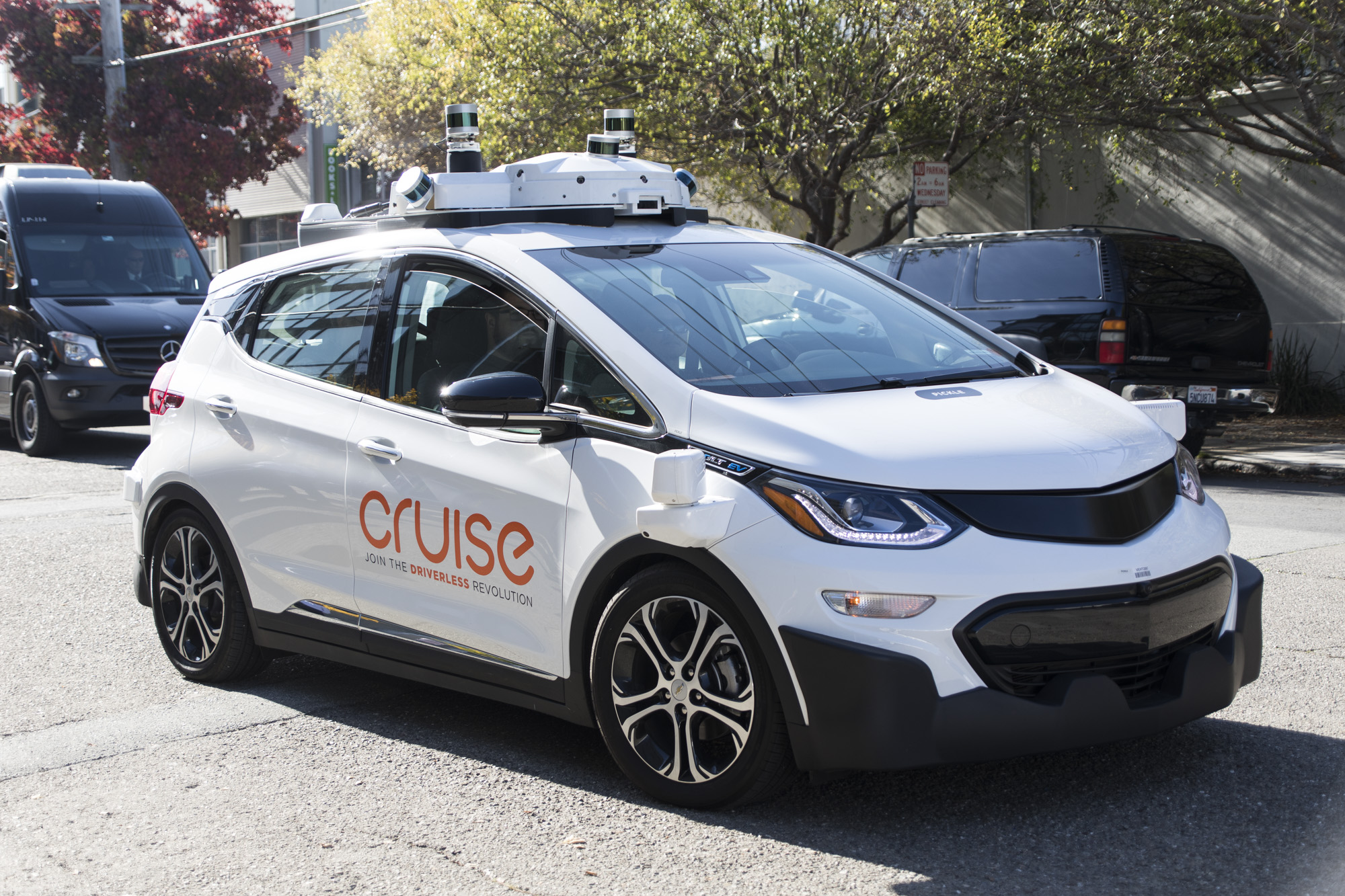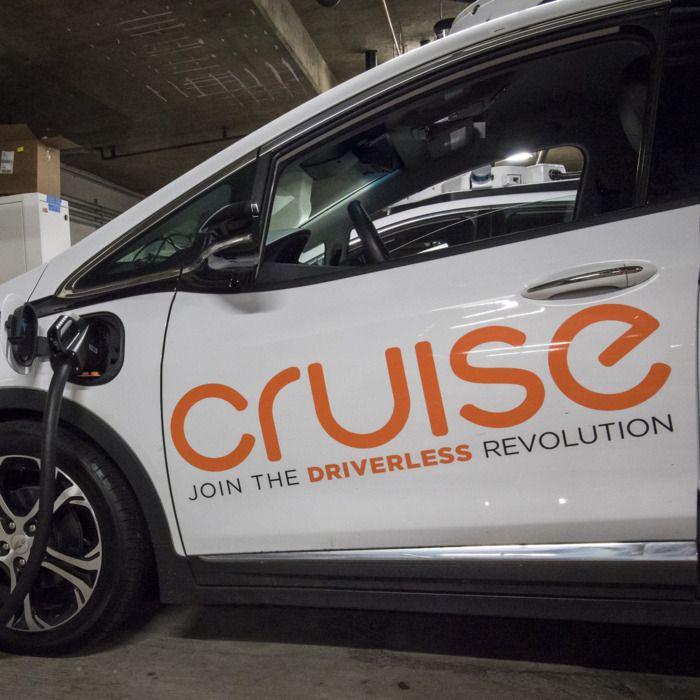Table Of Content

Other car companies have sought to put some distance between themselves and the startups working on self-driving cars. But GM has stayed bullish, insisting that the billions of dollars it was sinking into the technology (GM has lost $8.2 billion on Cruise since 2017) would eventually result in a safer future — and a huge payout for the company. Cruise was hit with an indefinite suspension by the California DMV covering both its testing and deployment permits for autonomous robotaxis. The suspension in the state came during an ongoing investigation into an incident involving one of the vehicles in October.
Vogt resigns as CEO of Cruise following safety questions, recalls of self-driving vehicles
The last 10 years have been amazing, and I’m grateful to everyone who helped Cruise along the way. The startup I launched in my garage has given over 250,000 driverless rides across several cities, with each ride inspiring people with a small taste of the future. GM CEO Mary Barra said in an email to employees seen by Reuters that Glidden will serve as Cruise's co-president with Mo Elshenawy, who will also become chief technology officer. The Cruise board met on Nov. 13 and the next day named GM general counsel Craig Glidden as Cruise's chief administrative officer. The board also said it would retain a third-party safety expert to assess safety operations and culture. Cruise had been testing 300 robotaxis during the day when it could only give rides for free, and 100 robotaxis at night when it was allowed to charge for rides in less congested parts of San Francisco.
Armed with traffic cones, protesters are immobilizing driverless cars
Kyle Vogt has resigned as CEO of Cruise, General Motors’ autonomous vehicle unit, as questions build about the safety of self-driving cars. Kyle Vogt has resigned as CEO of Cruise, General Motors' autonomous vehicle unit, as questions build about the safety of self-driving cars. The California Department of Motor Vehicles (DMV) last month suspended Cruise's permits for autonomous vehicle deployment and driverless testing. Cruise subsequently announced a "pause" of all of its driverless operations in the US, which includes San Francisco, Austin, Phoenix, Houston, Dallas, and Miami.
GM 'focused on righting' ship at self-driving Cruise unit -CEO - Reuters
GM 'focused on righting' ship at self-driving Cruise unit -CEO.
Posted: Mon, 04 Dec 2023 08:00:00 GMT [source]
News

"The results of our ongoing reviews will inform additional next steps as we work to build a better Cruise centered around safety, transparency and trust," the company said in a statement. "We will continue to advance AV technology in service of our mission to make transportation safer, cleaner and more accessible." "Today I resigned from my position as CEO of Cruise," co-founder Kyle Vogt wrote in a post on twitter.com. "The startup I launched in my garage has given over 250,000 driverless rides across several cities, with each ride inspiring people with a small taste of the future," he also wrote. The CEO of self-driving car firm Cruise resigned yesterday following an accident in which a Cruise robotaxi dragged a pedestrian 20 feet.
Lucid slashes prices for its luxury EVs for the third time in seven months
CEO of GM's Cruise robo-taxi unit resigns amid US safety review - Reuters
CEO of GM's Cruise robo-taxi unit resigns amid US safety review.
Posted: Sun, 19 Nov 2023 08:00:00 GMT [source]
Vogt's departure likely stems from the Oct. 2 incident wherein a Cruise AV dragged away a pedestrian knocked into the vehicle's path by a hit-and-run. Cruise did not disclose that its vehicle had dragged the pedestrian 20 feet under the car while initially corresponding with regulators. When this information came to light, California suspended Cruise's permit to operate driverless vehicles on public streets. Problems at Cruise could slow the deployment of fully autonomous vehicles that carry passengers without human drivers on board. It also could bring stronger federal regulation of the vehicles, which are carrying passengers in more cities nationwide.
GM's Cruise CEO Kyle Vogt resigns from company

Vogt and Kan, who more recently held the chief product officer role, founded the autonomous vehicle company in 2013. Initially, the pair had focused on kits that could retrofit a vehicle and turn it into a self-driving car. GM took interest and acquired the company in March 2016 in a deal of cash and stock valued at more than $1 billion. In a separate internal email, also viewed by TechCrunch, GM Chair and CEO Mary Barra announced that Mo Elshenawy, who is executive vice president of engineering at Cruise, will serve as president and CTO for Cruise. Craig Glidden, a Cruise board member and GM’s EVP of legal and policy who was recently put in charge as chief administrative officer at Cruise, will continue in that role.
Jon McNeill, a member of GM’s board, has been appointed vice chairman of the Cruise board. McNeill, who joined the Cruise board recently and was previously chief operating officer at Lyft and president of Tesla, will now serve alongside Cruise Board Chair Mary Barra. The automaker’s driverless car subsidiary, Cruise, announced last night the resignation of Kyle Vogt as CEO. The decision came over a month after an incident in which a hit-and-run victim became pinned under a Cruise vehicle and then was dragged 20 feet to the side of the road.
GM announces Cruise CEO Dan Ammann is stepping down
The operation lost more than $700 million in the third quarter of this year on its plans to expand operations to 15 U.S. cities. Former Tesla President Jon McNeill, a GM director since 2022, was named vice chairman of the Cruise board alongside Barra, who is the chair. Vogt's resignation came after GM and the board at Cruise increased their scrutiny of its leadership.
Satnavs and Google Maps to be updated in readiness for driverless cars
The CEO of General Motors’ self-driving vehicle company Cruise has announced his resignation just weeks after the company shuttered operations of its fleet to review safety procedures. Cruise was founded in 2013 when vehicle automation looked like a surefire near-future technology. While pioneer Tesla pledged to have a driverless vehicle that could cross the country solo by 2017, the closest a publicly sold car has gotten is Mercedes partial eyes-off assist, which only arrived this year. Vehicular autonomy looks further out than ever, and increasingly like a money sink with little potential for payoff—if any at all.
GM acquired Cruise in 2016 to speed up its self-driving car development program. Ammann, who was then the president of GM, oversaw the acquisition and later assumed the role of CEO of the company. Vogt wanted Cruise to dominate the market much in the same way that Uber dominated Lyft. But in truth, Uber’s failed effort to launch driverless cars turned out to be way more instructive. The initial layoffs included contract workers who had jobs cleaning, charging and maintaining the vehicles as well as answering customer support inquiries.
Mo Elshenawy, Cruise’s executive vice president of engineering, will become president and chief technology officer. It said Craig Glidden also will serve as president and continue as chief administrative officer for Cruise, an appointment announced earlier. Mo Elshenawy, Cruise's executive vice president of engineering, will become president and chief technology officer. The troubled self-driving car unit didn’t announce a new CEO but said Mo Elshenawy, currently executive vice president of engineering, will serve as president and chief technology officer. The California Department of Motor Vehicles suspended Cruise's deployment and testing permits for its autonomous vehicles after that incident. "When there is an unreasonable risk to public safety, the DMV can immediately suspend or revoke permits," the regulators said in a statement at the time.
Employee discontent was further inflamed last week when Cruise suspended its employee share-selling program for the fourth quarter. Sources who spoke to TechCrunch on the condition of anonymity said they could lose upwards of tens of thousands of dollars as a result of this decision. But Ammann also oversaw some setbacks, most noticeably the decision to delay a planned launch of a robotaxi service in San Francisco in 2019. The company has yet to commit to a new date but has implied it will be in 2022.
"As for what's next for me, I plan to spend time with my family and explore some new ideas. Thanks for the great ride!" Vogt wrote. By Andrew J. Hawkins, transportation editor with 10+ years of experience who covers EVs, public transportation, and aviation. On top of that, Cruise continues to hemorrhage cash, losing $728 million in Q3 and $8 billion since inception according to Reuters. GM CEO Mary Barra has remained supportive of Cruise, but GM's technical partner Honda has reportedly frozen further investment in the firm.
GM CEO Mary Barra would routinely invite him to appear on earnings calls or to speak at investor conferences in a sign that the automaker was fully invested in Cruise. Barra herself went onstage at CES in 2022 and declared that GM would sell fully autonomous vehicles, powered by Cruise’s technology, to regular people by mid-decade. In October, the California Department of Motor Vehicles ordered Cruise to remove its driverless cars from state roads, calling them a risk to the public and saying the company had misrepresented the safety of its technology. Cruise competes with Alphabet’s Waymo in deploying autonomous vehicles and had been testing hundreds in several cities across the U.S., notably its home of San Francisco. His decision follows weeks of turmoil at the unit, which had to pull all its vehicles from testing in the United States to conduct a safety review after an Oct. 2 accident that ended with one of Cruise's self-driving taxis dragging a pedestrian. Ammann is the latest CEO of an AV company to step aside as the industry struggles to meet its own over-inflated expectations about the future of driverless cars.
Cruise's woes are also a setback for an industry dependent on public trust and the cooperation of regulators. The unit had in recent months touted ambitious plans to expand to more cities, offering fully autonomous taxi rides. Cruise co-founder and CEO Kyle Vogt has resigned from his role at the autonomous vehicle venture owned by General Motors, according to a company statement sent to CNBC on Sunday. In 2020, he presided over the rollout of the Origin, the company’s first purpose-built autonomous vehicle. Under his leadership, the company acquired rival AV startup Voyage and raised enough investment to bring its valuation up to $30 billion. And earlier this year, he outlined a plan to scale up Cruise’s fleet to 1 million vehicles by 2030.
GM executives, including CEO and Chair Mary Barra, had hoped the startup would be ramping up a driverless transportation network this year, and hoped Cruise would play a notable role in doubling the company's revenue by 2030. Vogt confirmed his resignation Sunday night in a social media post on X, formerly known as Twitter. He did not give a reason for the resignation, and said he plans "to spend time with my family and explore some new ideas."

No comments:
Post a Comment